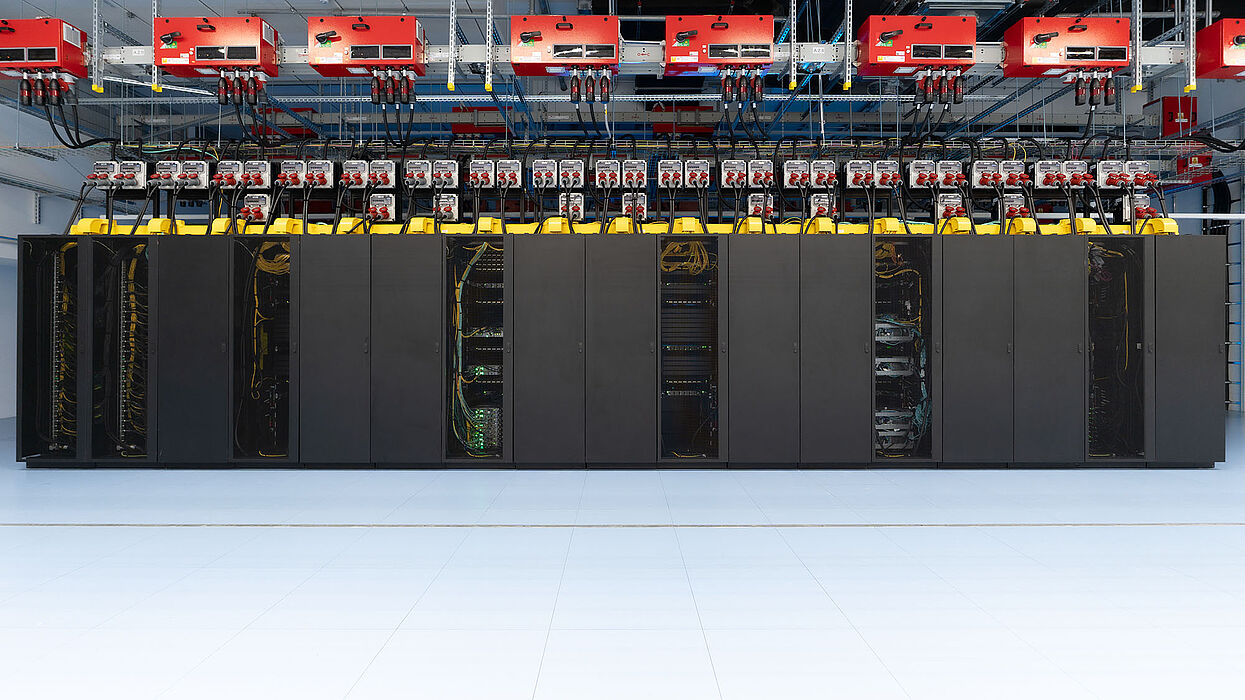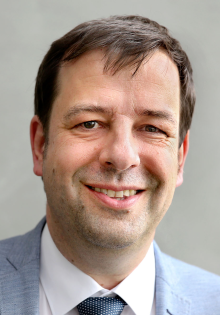Fifth place in the international ‘Green 500’ rankings
142,656 processor cores, 108 GPUs, AMD processors from the latest ‘Turin’ generation and an IBM Spectrum Scale file system with five petabytes of storage capacity: these are the outstanding specifications of ‘Otus’, Paderborn University’s new supercomputer. Even before it is officially put into use in the third quarter of this year, it is already breaking records: at ISC in Hamburg, the international trade fair for high-performance computing (HPC), artificial intelligence, data analytics and quantum computing, the system was placed fifth in the ‘Green 500’ list of the world's most efficient computing systems. The ‘Green 500’ and ‘Top 500’ ranking lists serve as the benchmark for science and IT specialists. Whilst the ‘Top 500’ looks at speed alone, the ‘Green 500’ examines speed in relation to electrical power consumption. This enables energy efficiency to be measured.
Setting sustainability standards
Otus, developed by Lenovo in conjunction with pro-com Datensysteme GmbH, is expanding the current infrastructure of the HPC computing centre and enabling a wide range of CPU-intensive applications – from atomic simulations through to quantum computing. This computer system operated by the Paderborn Center for Parallel Computing (PC2), an interdisciplinary research facility at the university, has approximately double the computing power of the current Noctua system. ‘With Otus, we are developing innovative and pioneering infrastructure that will enable researchers to address complex research questions at the highest level in fields such as physics, chemistry or machine learning. We are also setting standards for energy efficiency and sustainability. Initial testing has shown high performance levels’, said Professor Christian Plessl, computer scientist at Paderborn’s Department of Computer Science and head of PC2. Indirect free cooling for example enables supercomputers to be operated in an energy-efficient way all year round, with the high-temperature exhaust heat being used for heating buildings. The electricity comes entirely from renewable sources and is thus CO2-free.
One of Germany’s top ten academic computing centres
The system can be expanded up to 100 FPGAs (field-programmable gate arrays). The innovative hardware components offer an ideal testing ground for computer system research. ‘This means that it will also provide ideal conditions for outstanding research in the future’, said Professor Matthias Bauer, President of Paderborn University, adding: 'High-performance computing is now used for a variety of disciplines including quantum, climate and materials research. Here in Paderborn we have a long tradition and relevant expertise in the field of computational science, as well as offering world-class state-of-the-art infrastructure.’
This does not just benefit researchers from the computer’s own university, as a large part of it is also being made available to researchers from all over the country under the NHR Alliance. By way of explanation, many research institutions have local computing centres to cover their own needs. In addition, there are national high-performance computing centres in the NHR Alliance, which also includes PC2. These make their supercomputers available to users from universities across the whole of Germany. ‘Noctua 2’ already put the university in Germany’s top ten academic computing centres, and thus at the peak of university-based high performance computing.
The computer was procured via the NHR Alliance and funded in equal parts by the state of North Rhine-Westphalia and the federal government. The total cost is around 14 million euros. Otus will be undergoing final acceptance testing in the next few weeks and will then be made available. ‘The fact that we can celebrate such a fantastic start for Otus with this ranking is very special for us’, Professor Plessl delightedly said.


